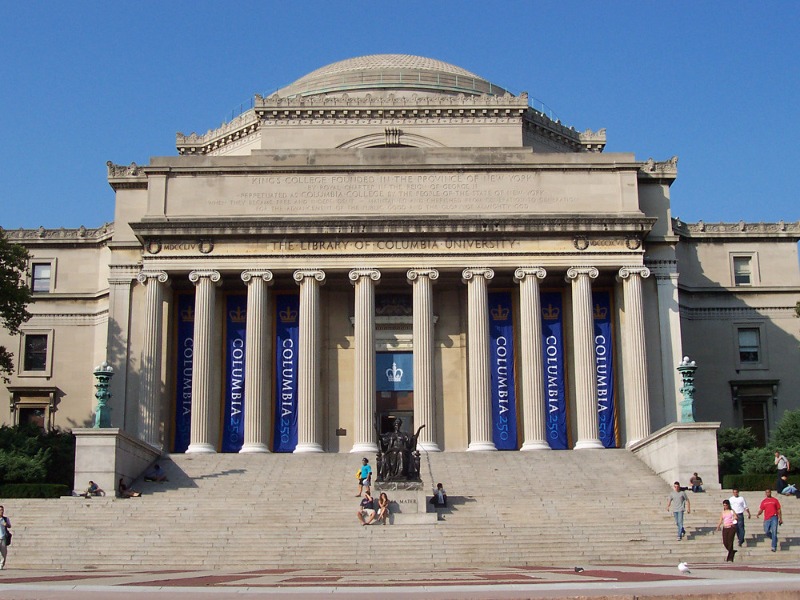Today’s Headlines and Commentary
Lawfare’s daily roundup of national security news and opinion.
Published by The Lawfare Institute
in Cooperation With

Two Canadians that were detained in China on vague espionage charges arrived in Canada on Saturday, the same day Huawei Chief Financial Officer Meng Wanzhou was extradited to China, reports the Washington Post. The release of Michael Kovrig and Michael Spavor came hours after the U.S. Justice Department agreed to release Meng, a move that has been widely condemned as an act of “hostage diplomacy.” While a state-run tabloid in China reported that the exchange “unlocks the bottleneck in China-Canada ties,” Lynette Ong, associate professor of Political Science at the University of Toronto, said bilateral relations would remain tetchy.
Kim Yo Jong, the sister of North Korea’s leader Kim Jong Un, said Friday that the country would be willing to resume talks about ending the Korean War if South Korea is willing to meet certain conditions, according to Reuters. Those conditions include the United States and South Korea abandoning what North Korea calls hostile policies toward it. South Korean President Moon Jae-in has repeatedly called for a formal end to the war and reiterated the importance of restoring a hotline link between the countries first.
National Security Adviser Jake Sullivan will travel to Saudi Arabia on Monday to hold discussions with Crown Prince Mohammed bin Salman about the ongoing situation in Yemen, says AP News. The Saudi Arabian government previously offered a cease-fire proposal to the Iranian-backed Houthis following international criticism for its airstrikes and embargos. The visit also comes as the administration looks for ways to resurrect the Iran nuclear deal, which the Saudis strongly oppose.
The CIA recalled its chief of station in Vienna, in part over his alleged mishandling of cases of “Havana syndrome,” an ailment that has no definitive cause or intent, reports NPR. In recent months, Vienna saw a growing number of cases consistent with Havana syndrome, which afflicted diplomats, intelligence officers and the children of government employees. Symptoms of Havana syndrome include dizziness, migraines and memory loss. The chief had expressed skepticism that the reports of Havana syndrome were genuine, and was criticized for not taking swift action. While some speculate that Russia is behind the attacks, U.S. officials have not reached a definitive conclusion.
President Recep Tayyip Erdoğan announced Turkey will purchase another Russian air defense system, despite warnings from the U.S. and other NATO allies that this could endanger the security of the NATO alliance, according to the Hill. Erdoğan claimed that America’s failure to sell Turkey the U.S.-made Patriot air defense system led to his government’s purchase of the Russian system.
The pro-democracy group Hong Kong Alliance, which had organized annual vigils commemorating those killed in the 1989 Tiananmen Square protests, decided to disband Saturday, reports AP News. The move came after a police investigation that followed the imposition of broad national security laws that effectively criminalize dissent.
China’s central bank said on Friday that all financial transactions involving cryptocurrencies are illegal, sending a strong signal on the government’s determination to crack down on the industry, according to the New York Times. Chinese banks were banned from using domestic cryptocurrencies years ago, but China remained a major hub for crypto mining. Economist and Senior Fellow at the Cato Institute George Selgin argued that this announcement was part of a broader effort to incentivize usage of China’s state-backed digital yuan.
Department of Homeland Security Secretary Alejandro Mayorkas announced on Friday that no migrants remain in the border camp underneath the Del Rio International Bridge, says CNBC. Previously, 15,000 migrants, predominantly of Haitian descent, were camped underneath the bridge. Mayorkas contended that the Biden administration’s use of Title 42, which denies certain migrants the ability to apply for asylum, for the expulsion of Haitian migrants was a “public health” decision rather than “an immigration policy.”
ICYMI: Yesterday on Lawfare
Matthew Levitt wrote about the Syrian government’s facilitation of the Islamic State’s survival in an effort to discredit broader Syrian opposition.
Email the Roundup Team noteworthy law and security-related articles to include, and follow us on Twitter and Facebook for additional commentary on these issues. Sign up to receive Lawfare in your inbox. Visit our Events Calendar to learn about upcoming national security events, and check out relevant job openings on our Job Board.





